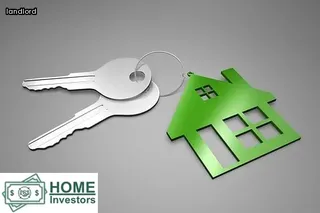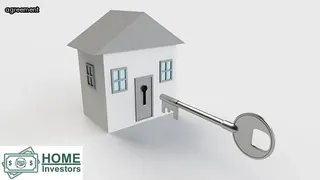In Delaware, landlords and tenants have certain responsibilities and rights regarding property damage. The Delaware Landlord-Tenant Code outlines these obligations in detail.
Tenants are expected to keep the premises in a safe, clean condition, which includes not damaging the rented unit or any common property. Landlords must make sure that the property meets all applicable building codes and health standards.
They are also responsible for maintaining any structural components of the rental unit as well as any appliances, fixtures, and furnishings. In addition, landlords must provide written notice to tenants if they need to enter the property for repairs or maintenance.
Tenants also have certain responsibilities when it comes to maintaining their rental unit. This includes keeping all areas clean and free from debris, reporting necessary repairs to their landlords in a timely manner, and using reasonable care when using appliances or other items provided by the landlord.
Both parties must also adhere to any safety rules outlined in the lease agreement, such as not tampering with fire safety equipment or smoking inside the unit. When a tenant damages the property beyond normal wear and tear, landlords may have recourse through either deducting from their security deposit or seeking reimbursement through legal action depending on the severity of damages caused by tenant negligence.

The Delaware Landlord-Tenant Code is a set of laws established by the state to protect both landlords and tenants alike. One important aspect of the code is property damage, as there are certain rights and responsibilities that both landlords and tenants have in this regard.
Tenants must take care of their rental unit and any damage caused by them or their guests must be paid for. Landlords are responsible for maintaining the property in a safe condition and cannot charge tenants for damages resulting from landlord negligence.
Additionally, landlords may be liable if they fail to provide written notice of known defects which could result in further damages to the property. It's important for both landlords and tenants to be aware of their rights and obligations as outlined in the Delaware Landlord-Tenant Code in order to prevent disputes regarding property damage.
Delaware has specific laws for landlords and tenants regarding property damage caused by tenants. Landlords are responsible for making all repairs to the premises unless it is caused by negligence or improper use of the property by the tenant.
If a tenant does cause damage to the rental property, they are responsible for repairing or replacing any damaged items as well as restoring any areas that have been damaged. This includes not only damages that occur during their tenancy, but also damages that occur after they have moved out.
Landlords must provide advance notice of any repairs they plan to make, and tenants may not be charged more than their security deposit for repair costs. Additionally, tenants are able to withhold rent if necessary repairs are not made in a timely manner by their landlord.
Landlords must also follow certain safety guidelines when dealing with property damage and should make sure that all repairs meet local building codes and safety regulations. While it is ultimately up to the landlord to ensure that their rental property is kept in good condition and repaired as needed, there are obligations on both sides when it comes to property damage in Delaware.

When renting a property in Delaware, it is important for tenants to understand the rights and responsibilities of both the landlord and tenant regarding property damage. Landlords must maintain the premises in a habitable condition, including ensuring that all necessary repairs are timely made.
Tenants have the right to request repairs from their landlord, but it is important to follow certain steps when doing so. First, it is recommended for tenants to inspect the rental property before signing a lease and upon moving out.
Second, if any repair or maintenance issue arises during tenancy, tenants should give written notice to their landlord as soon as possible. Third, tenants should document all requests for repair in writing with details of the damages or issues that need to be fixed.
Fourth, landlords are required by law to address any repair requests within 30 days after they receive written notice from the tenant. Finally, if a landlord fails to make necessary repairs despite a tenant’s request, then they may be in violation of Delaware state laws and subject to legal action by their tenant.
In Delaware, landlords are responsible for making any repairs necessary to keep the rental unit in a safe and livable condition. Tenants can request that their landlord make repairs, but if the landlord does not, tenants have certain rights.
Tenants may be able to withhold rent if the repairs are not addressed by the landlord. Additionally, tenants may be able to terminate their lease and move out without further obligation if they believe that the landlord has failed to provide a habitable living space.
Tenants may also have the right to deduct the cost of repair from their rent or sue their landlord in small claims court if they incur expenses related to fixing damages caused by the landlord's negligence or breach of contract.

In Delaware, it is important for landlords and tenants to understand their rights and responsibilities regarding property damage. As a tenant, if you have experienced damage to your property, it is important to make sure that the landlord is taking appropriate steps to repair or replace the affected items.
However, if the landlord begins to take retaliatory measures such as increasing rent, refusing repairs or services, or evicting a tenant without cause in response to a tenant’s complaint about damages, this would be considered landlord retaliation. To avoid landlord retribution for bringing up property damage issues in Delaware, tenants can document all communication with their landlord regarding the damages using records such as emails, photos of the damage and rent receipts.
Additionally, tenants should also review their lease agreement for any clauses that may provide relief from landlord retaliation. Lastly, if a tenant believes they are being retaliated against by their landlord due to reporting of property damage in Delaware they can reach out to legal aid or housing advocacy organizations for assistance.
When crafting a rental agreement between a landlord and tenant in Delaware, it is important to consider the rights and responsibilities of both parties with respect to property damage. The rental agreement should outline the conditions for damages caused by either party, such as negligence or misuse.
It should also specify who is responsible for repairs and how they should be carried out. Additionally, the agreement should include rules regarding damage caused by third parties, such as family members or guests of the tenant.
If necessary, landlords can also require tenants to pay a security deposit in order to cover any potential damages. By taking these factors into account when creating their rental agreement, landlords and tenants in Delaware can ensure that their transaction will go smoothly and that both parties will be adequately protected against property damage.

Navigating the tenant screening process is an important part of being a landlord in Delaware. Landlords must be aware of their rights and responsibilities when it comes to property damages caused by tenants, as well as the policies for tenant screening.
It's important to know the laws governing landlords and tenants in Delaware when it comes to security deposits, repairs, and other related issues. Landlords should become familiar with Delaware's landlord-tenant statutes to make sure that both parties are aware of their duties and obligations for renting a property.
The key components of tenant screening include verifying rental history, credit checks, criminal background checks, and employment verification. While conducting these screenings can help landlords find responsible tenants, they should also ensure that they are not violating any applicable state or federal laws.
A thorough understanding of Delaware's landlord-tenant laws can help landlords manage the tenant screening process responsibly while protecting the interests of both parties involved.
In Delaware, landlords have a responsibility to provide their tenants with safe and habitable living conditions. Tenants are also responsible for keeping the rental property in good condition.
The Landlord-Tenant Code of Delaware outlines the rights and responsibilities of both parties when it comes to property damage. Landlords must ensure that all necessary repairs and maintenance are done in a timely manner, while tenants are expected to pay for any damages they or their guests cause beyond normal wear and tear.
If a tenant fails to pay or fix any damage they caused, landlords can deduct the cost from the security deposit or sue them in court. Additionally, landlords cannot hold tenants responsible for any damage that was present before they moved into the rental unit unless it was disclosed in writing beforehand.
If tenants discover hidden damage after moving in, they should contact their landlord right away so that appropriate steps can be taken to repair or replace the damaged item. It is essential for both landlords and tenants to understand their rights and responsibilities related to property damage so that conflicts can be avoided and agreements can be upheld.

Rental agreements are important documents that outline the rights and responsibilities of both landlords and tenants in Delaware. They typically include specific clauses related to property damage, which can help protect both parties if an issue arises.
Property damage clauses usually outline who is responsible for repair or replacement costs, as well as how disputes should be handled. Additionally, some rental agreements may also include provisions regarding how much notice a tenant must give before vacating the property.
Landlords and tenants should read their rental agreement carefully to ensure they understand all the key clauses related to property damage. It is also important to note any exceptions or exclusions that may be included in the document.
Understanding these clauses is essential for landlords and tenants alike, as it can help prevent costly disputes down the road.
Finding free resources to support your search for information on Delaware landlord-tenant rights and responsibilities regarding property damage can be an overwhelming task. To make the process easier, there are a number of online resources to turn to.
For example, the Delaware Landlord Tenant Code provides detailed information on tenants' rights and responsibilities, as well as how landlords should respond in the event of property damage. Additionally, the Delaware Department of Justice website offers information on tenant security deposits and what happens if property is damaged during tenancy.
In addition, there are several legal aid organizations that provide free advice and assistance for those needing help understanding their rights and remedies under Delaware law. Finally, landlords should also ensure they understand their rights and obligations under local ordinances in order to protect themselves from potential legal action due to property damage.
With these helpful resources, tenants and landlords alike can better understand their rights and responsibilities when it comes to property damage in Delaware.

Delaware is known for its landlord-friendly laws and regulations, making it an attractive place to invest in rental property. With that said, landlords must still familiarize themselves with the Delaware Landlord-Tenant Code in order to understand their rights and responsibilities regarding property damage.
This code dictates how much responsibility a landlord has for repairs, outlines procedures for tenant security deposit refunds and sets out limits on late payment fees. Landlords must provide tenants with a written notice of their rights and responsibilities before entering into a lease agreement, as well as any rules or regulations that may be applicable to the rental unit.
Additionally, Delaware law requires landlords to take reasonable steps to maintain the property in good condition and repair any damages caused by their negligence or failure to act. Tenants are also expected to keep their rental units in good condition and pay for any damages they cause beyond normal wear and tear.
Understanding these rules will help landlords ensure compliance with state laws while providing a positive experience for both parties.
In Delaware, the landlord must provide rental properties in a condition that is considered to be ‘habitable’ according to state law. This means that the rental property must be fit for living, with adequate heat and ventilation, running water, proper sanitation systems and other essential amenities.
The landlord is also responsible for providing safe and secure premises, including smoke detectors and carbon monoxide detectors. The tenant has the right to expect these conditions to be met upon taking possession of the property.
In addition, the landlord must make any necessary repairs or maintenance on the property in a timely manner if they are reported by the tenant. As far as damages to the property caused by either parties are concerned, both landlord and tenant are responsible for their actions or negligence.
Landlords should take reasonable steps to ensure that tenants do not cause any damage to their rental properties beyond normal wear and tear; however, if damage does occur due to tenant negligence or abuse of the premises then it is up to the landlord to determine whether it is reasonable for them recover compensation for repairing or replacing the damaged items from the tenant’s security deposit.

Delaware landlord-tenant rights and responsibilities regarding property damage are complex and require proper investigation to ensure that remedies are pursued in an efficient manner. Common disputes between landlords and tenants in DE should be evaluated for potential statutory protections that may apply.
Property damage lawsuits must be filed within a certain time frame, or else consequences such as missing the filing deadline may occur. Calculating the filing deadline is important in order to start the legal process correctly, while time limits on property damage lawsuits are imposed by Delaware state law.
Additionally, assessing damages caused by tenants to rental properties in DE is a critical step when determining the appropriate remedy for landlords following damage by tenants.
Delaware Code 5514 outlines the landlord-tenant rights and responsibilities surrounding property damage. This code states that it is the responsibility of the tenant to pay for any damage caused to the property, not including ordinary wear and tear.
It also specifies that tenants must inform their landlord of any damages within a reasonable time frame, or be held responsible for any additional damage caused due to negligence. Additionally, landlords must provide tenants with proper notice if they wish to enter their rental unit.
Landlords are obligated to repair any damages that exist within ten days of being made aware of them, unless doing so would cause an unreasonable burden on the landlord. Finally, Delaware Code 5514 outlines what can constitute as an appropriate security deposit amount for tenants renting in Delaware.

Section 5502 of the Delaware Landlord Tenant Code is a critical section that outlines the rights and responsibilities of both landlords and tenants in regard to property damage. This section defines the expectations for both parties in terms of who is responsible for repairing any damages to leased property, as well as what compensation may be appropriate when a tenant causes damage due to negligence.
Additionally, this section explains the obligations a landlord has towards their tenants if they fail to repair or replace damaged property, while also specifying how costs associated with any repairs may be shared between landlord and tenant. Lastly, Section 5502 provides guidance on how landlords can protect themselves from financial losses due to tenant-caused damage by requiring security deposits at signing of the lease agreement.
Such clauses are meant to ensure that both parties are adequately protected in case of property damage due to neglect or other unforeseen circumstances.
The Delaware Code 5507 is an important landlord-tenant law that outlines the rights and responsibilities of both parties when it comes to property damage. This statute sets out the rules for how landlords must handle damages caused by tenants, as well as what tenants are liable for in terms of repair costs.
The Delaware Code 5507 states that if a tenant causes damage to the landlord's property, then the tenant is responsible for repairing or replacing the damaged item. It also mandates that landlords must provide written disclosure of their rights and responsibilities regarding property damage before signing a lease agreement.
Additionally, landlords must give tenants thirty days’ notice before making any repairs due to property damage and cannot increase rent during this period. Tenants have the right to contest any repairs that they believe may be unnecessary or not related to their own negligence.
Lastly, landlords are obligated under Delaware law to keep all rental properties in good and safe condition, meaning they must take reasonable steps to address any problems or damages resulting from tenant neglect or abuse of the premises.
In Delaware, tenants have the right to live in a rental property that is safe and habitable. Tenants are also entitled to the return of their security deposit after they move out, unless the landlord can provide proper documentation of any damage or unpaid rent.
Furthermore, landlords cannot evict a tenant without providing proper notice and going through legal proceedings; nor can they raise the rent unreasonably or make changes to the terms of a tenancy without prior written notice. Additionally, in Delaware tenants have the right to receive 30 days’ written notice before any termination of tenancy occurs.
Finally, landlords must maintain all common areas in a safe and clean condition and must repair any damages beyond normal wear-and-tear that may occur during tenant occupancy.